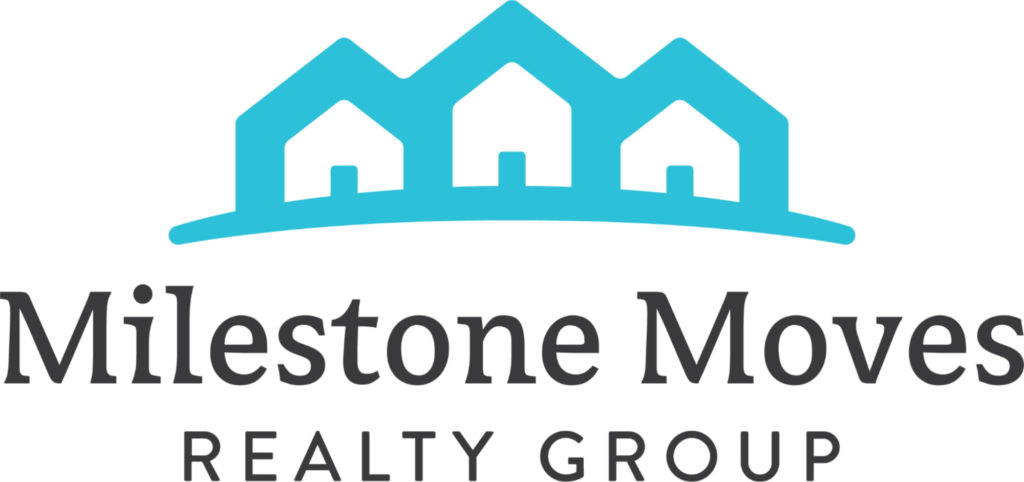Home appraisals are important (and required)
A home appraisal determines the fair market value of a property and helps ensure you don’t overpay for it. Appraisals protect both the buyer and the mortgage lender, and most loan programs require one when you purchase a new home.
Most borrowers pay between $300 and $425 for a home appraisal, which is included in their closing costs. But, if you meet certain guidelines, you may not need one when refinancing a home you already own.
Keep reading to learn more about appraisal costs, what to expect from the process, and why it’s important for your home-buying journey.
What is a home appraisal?
A home appraisal is used to determine a property’s “true” value. Professional real estate appraisers inspect a home’s condition and features, then compare it to recently sold homes in the nearby housing market. The appraiser will judge how different factors — like plot, location, upgrades, amenities, and square footage — impact your home’s value when compared to other similar properties (called “comps”). Ultimately, appraisers come up with a fair market value for the home.
Why are home appraisals required?
Lenders usually require an appraisal because they want to be certain the home is worth its purchase price and could be sold to cover losses if you default on your mortgage. Mortgage lenders will not give you a mortgage loan above the appraised home value because that would put them at risk of financial loss in the event of a foreclosure.
Your lender will order the home appraisal during the mortgage approval process, but won’t ultimately pay for it. It’s typically the home buyer who pays the appraisal fee. However, in some areas, the seller traditionally picks up the tab.
Are a home appraisal and home inspection the same thing?
First-time home buyers may confuse a home appraisal with a home inspection. Both occur before a home purchase and give a buyer the opportunity to back out of the sale or renegotiate. However, the two are inherently different.
A home inspection is an in-depth examination of a property’s HVAC, plumbing, foundation, and other systems, rather than an estimation of a home’s value. Inspections are meant to turn up any structural or functional issues with a home prior to the sale, giving buyers a chance to renegotiate the purchase price or ask the seller to make repairs. In addition, a home appraisal is almost always required by mortgage lenders whereas an inspection is optional (but highly recommended).
How much does a home appraisal cost?
A typical appraisal for a single-family home costs around $350, with average prices ranging between $313 and $421, according to research conducted by HomeAdvisor. But prices vary by location. For example, California home buyers can expect their home appraisals to cost anywhere from $600 to $800. In addition, variables such as the time of year and size of the property can affect home appraisal fees. Indeed, a multifamily home appraisal can cost upwards of $1,500.
Typically, you’ll be lucky to pay less than $300 for an appraisal and unlucky to pay more than $450. However, if you require a particularly detailed report on an exceptionally large home with complex valuation issues, you could easily end up paying four figures.
How appraisals help buyers
Many buyers see appraisals as undesirable. At best, they’re yet another charge on a long list that makes up closing costs. At worst, a low appraisal can torpedo a deal, snatching a dream home from a keen buyer.
However, there’s another way of looking at home appraisals. They stop you from paying too much for a property. And why would you want to pay over the fair market value for your next home?
As importantly, many home buyers use a low appraisal to renegotiate the purchase price. That can equal savings greater than the appraiser’s fee. On the other hand, a higher appraised value can give buyers more home equity and a good deal on the property.
What does an appraiser look for?
Many real estate appraisers use the Fannie Mae Uniform Residential Appraisal Report to assess the condition of a property. Here are some of the things appraisers consider when comparing a home’s asking price to its true value:
- The living condition of the home: An appraiser will evaluate the general condition of the property. They’ll count the number of bedrooms and bathrooms, assess the floor plan’s functionality, look at home amenities, and confirm the square footage
- Home improvements: The appraiser will consider any home renovations or other upgrades to the property that may improve the value of your home. They’ll also appraise any improvements made outside of the home, such as new landscaping, a pool, or a renovated garage
- Nearby home values: A licensed appraiser will also evaluate comparable properties, or “comps,” in the nearby housing market. They’ll look at the sale price of other homes and their current property values to determine the appraised value of your new home
Once the appraiser completes their evaluation, they’ll issue a final valuation of the property in an appraisal report that is submitted to your mortgage lender.
What’s included in an appraisal report?
Typically, a home appraisal report includes:
- Explanation of the valuation: Appraisers show their work so you know how they arrived at the home’s final value
- A brief overview of local housing market trends: Are prices currently going up or down? If so, how quickly?
- Summary of the home’s characteristics: Its condition, size, and any improvements that have been carried out
- Other considerations: Has anything else about the home or its neighborhood affected the valuation?
- Structural problems and defects: Any issues that the appraiser noticed that affected their valuation
It’s important to recognize that home appraisers are not home inspectors. Don’t rely on their expertise to uncover structural problems because they won’t always discover those. In any event, it’s not their job to look for these types of issues.
Appraisers typically value your property in several ways. The most common is the “comparables” valuation detailed above, which finds a value by comparing the subject property to other nearby sales. The “replacement cost” is what it would take to replace the home on the same lot. And the “rental schedule” arrives at the value by considering rental income.
What sellers provide during the home appraisal process
The National Association of Realtors recommends that real estate agents and sellers should prepare a package of documents and make it available to appraisers when they arrive for the inspection. The NAR suggests that the package should contain copies of as many as possible of the following:
- Detailed maps of the near neighborhood plats
- Surveys
- Deeds
- Covenants
- HOA documents
- Floor plans
- Specifications
- Inspection reports
- Neighborhood Details
- Recent comparable sales
- Detailed list and dates of upgrades, home improvements, and costs, with invoices where possible
- Energy-efficient green features
- Purchase agreement
The more of those a seller and real estate agent provide, the more accurate the appraisal might be.
Cash buyers don’t need a home appraisal
Not all real estate transactions require a home appraisal. People buying a home with their own cash aren’t obliged to have one.
Also, professional developers rarely bother. They reckon they know as much as any appraiser. And, anyway, what’s the point of establishing the market value of a home if you’re going to tear it down and build a new one? You just need to know the going rate for development land.
Refinancing doesn’t always require an appraisal
Mainstream mortgage lenders typically require a property appraisal when you’re buying a home. But they sometimes won’t insist on one when you’re refinancing. “If you have 20% down, then you do not always need an appraisal — even for some home purchases,” says Jon Meyer, The Mortgage Reports loan expert and licensed MLO.
It’s up to your lender. However, the general rule is that appraisals aren’t always needed when the total amount of the loan being refinanced is $250,000 or less.
Homeowners with an FHA loan can refinance without a home appraisal using the FHA Streamline Refinance program. Similarly, borrowers with a VA loan can use the Interest Rate Reduction Refinance Loan (IRRRL) without an appraisal.
Lenders are least likely to require an appraisal for a conventional mortgage loan when you want a “rate-and-term” refinance. That means you pay your closing costs out of pocket and improve on your mortgage terms without increasing the balance. If you wrap the refinance costs into a new loan, it’s called a “limited cash-out” home loan.
Lenders are most likely to require an appraisal when your loan-to-value ratio (LTV) exceeds 80% or when you apply for a cash-out refinance.
Dos and don’ts on home appraisal day
Sellers and agents may attend the home appraisal. However, they should only answer questions and provide information. Trying to influence the appraisal outcome in any way is illegal.
The appraiser is not allowed to divulge anything confidential at this point. You may, however, ask to check the appraiser’s credentials and satisfy yourself that they have the requisite local knowledge to reach a fair valuation. That’s important, because some appraisers jump at any opportunity to grab a job, even if they do not know the area.
So it’s a good idea to check the office address and make sure it isn’t in the next county. If you have well-founded doubts about either the appraiser’s knowledge or credentials, you can ask the lender to send someone else.
Such situations are relatively rare. Most appraisers strive to deliver exactly what they’re paid for: a valuation that reflects the fair market value of the home.
Home appraisal FAQ
What’s the purpose of a home appraisal?
The purpose of a home appraisal is to establish the fair market value of a home. It confirms for both you and your mortgage lender that the agreed price of the property is reasonable. An appraisal also ensures that a borrower is within loan-to-value guidelines. When an appraisal comes in low, the buyer may need to increase their down payment to qualify for the home loan. Furthermore, in some states, home appraisals may be used to calculate property taxes.
What will fail a home appraisal?
A home appraisal fails when it issues an appraised value that is less than the home purchase price. Several factors can fail a home appraisal, including sluggish housing market conditions, bad comps, and inexperienced appraisers who don’t possess adequate local market knowledge. Messy and blighted homes can also fail an appraisal. This is why sellers are encouraged to clean up their properties beforehand and give the exteriors a bit of curb appeal.
How long does a home appraisal take?
The in-person home appraisal usually takes just a couple of hours to complete. But the whole appraisal process can take a few days to a week or longer, depending on the property and the appraiser’s schedule. In addition to a site visit, a licensed appraiser will research local market conditions, look at recent comparable sales, and evaluate property values in the area. They will also complete a written valuation report that is submitted to your mortgage lender.
What happens after a home appraisal?
After a home appraisal, an official appraised value is issued, and the home buying process continues. The lender will begin underwriting the mortgage loan, and, if approved, the buyer continues to the closing table where they present a cashier’s check or wire transfer for the down payment and other closing costs. If there is an issue with the appraisal, then the buyer and seller have an opportunity to renegotiate or terminate the purchase agreement.



